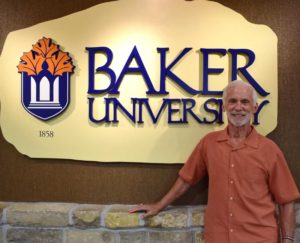Congress just made their position official, as has the Supreme Court in previous rulings. According to a report by the Public Religion Research Institute, 82% of Americans favor laws that protect LGBTQ+ individuals from discrimination. According to the 2022 report by the Human Rights Campaign, a record-high number of cities have adopted LGBTQ+ nondiscrimination laws and policies. While the number of Americans identifying as Christian has been declining, PEW reports that a slight majority (54%) now support acceptance of homosexuality. While white evangelicals are still the largest group that openly opposes LGBTQ+ behavior, the shocking news is that 66% of these individuals now support protecting their legal rights.
The Respect for Marriage Act passed the Senate with 61 votes and passed the House by a vote of 258-169. This bipartisan legislation will go to the White House where President Biden has promised his support. While Gallup reporting has long shown Democrats to favor same-sex unions, recent polling indicates that 55% of Republicans who responded are in support for the first time.
Supreme Court decisions have evolved in concert with the American majority viewpoint. Less than two decades ago, before Lawrence v. Texas, states were permitted to enact so-called “sodomy laws,” criminalizing consensual and private LGBTQ+ intimacy. Just seven years ago, before Obergefell v. Hodges, same-sex couples were denied the rights and responsibilities of civil marriage. The 2020 Bostock v. Clayton County decision held that the Civil Rights Act of 1964 protects employees against discrimination which terminated the practice by 29 states that had allowed employment discrimination based on gender identity or sexual orientation.
This shift toward acceptance of LGBTQ+ rights perks my interest as one who studies culture and history. A simple examination of the term “homosexual” can be telling in that “homo” is derogatory and implies abnormality, while “sex” ignores any other type of attraction. Prior to a reversal in 1973, the American Psychiatric Association classified “homosexual” as a diagnosed mental disorder for those attracted to another of the same gender. Evangelical Christians have always supported the “Love God and love your neighbor” theme found in multiple scriptural passages and specifically “Love your neighbor as yourself” found in Leviticus 19:17-18 but did not consistently invite the LGBTQ+ community into the neighborhood. This writer could find no textual evidence for an ancient equivalent of modern LGBTQ+ relationships. In the New Testament, Jesus said nothing regarding same-sex relationships or intimacy, but he did respond with inclusive love toward those marginalized by ancient society. In the Hebrew Bible, Leviticus condemns unnatural relationships, eating shellfish, wearing clothing made of mixed fabric, and getting a tattoo. The Bible also has much to say about heterosexual relationships and intimacy, as well as how human beings might engage faithfully in marriage, divorce, fidelity, and child-rearing.
In our information age, more Evangelicals who claimed that “homosexuality” violates the word of God as mandated by the Bible had discovered how and when the term appeared in scripture. The word ‘homosexual’ first appeared in scripture with the RSV Biblical translation in 1946. The original Greek word was “arksenokoital,” and it literally translated to describe men who molested young boys. The RSV translation was a committee decision authored by Luther Weigle, Dean of the Yale Divinity School, who served as the Chairperson. This group concluded that the original language describing a pervert that molested young boys were identical to the term homosexual. Therefore this “word of God” was an action by a group of men who collectively expressed their own beliefs. Many other Bible publishers picked up on their RSV translation which multiplied the Biblical volumes containing this revised narrative. 8. http://www.bible-researcher.com/rsv.html
People of faith are entitled to freedom within their religious communities to believe, pray, preach, and teach as they believe. Yet it is just as vital to protect the religious freedom of a diverse nation so that all people of faith (and those with none) can marry whom they love, shop where they want, work without fear of discrimination, and have equal status under the law. My hope is that the hardcore minority of Evangelical Christians will continue to diminish by joining others in this faithful position.
________________________________________________________________________________________________________________________
 Dr. Don Clardy
Dr. Don Clardy
Dr. Don Clardy is a tenured professor at Baker University with 40+ years in higher education and numerous academic publications. More recently, his writing interests have turned toward current, controversial issues to spark independent thinking by those who choose to read his narrative work.






